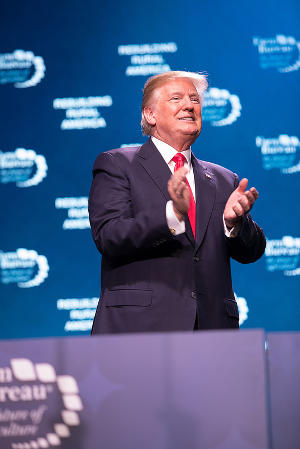Members of the Oklahoma Farm Bureau that were successful in making their way through security and sitting for several hours ahead of the arrival of the President of the United States were not disappointed with what Donald Trump had to say. Oklahoma Farm Bureau Board Member Monte Tucker told Radio Oklahoma Ag Network Farm Director Ron Hays that both President Trump and his Secretary of Agriculture Sonny Perdue impressed him for their appreciation of farmers and ranchers. Tucker says "the first thing they talked about is how they are proud of the United States- they are proud of agriculture- they're proud of what Monte Tucker from Sunny Point, Oklahoma produces to try to create wealth and feed the world- and I have a lot of respect for that."

Oklahoma Farm Bureau President Rodd Moesel also came away impressed with both Perdue and Trump. "The President had the audience eating out of his hand today as he reaffirmed his commitment to a new farm bill and for his support for crop insurance in that farm bill. He talked about how important the values of rural America were- and that those were the values that have made America great and that we need to affirm and support those values and expand those all across this country- and he was just very committed to the importance of agriculture and announced these efforts that he's doing to give more attention to the agricultural community."
The announcement about bringing high speed internet to rural America put a smile on Monte Tucker's face. "What resonated with me- first Secretary Sonny Perdue talked about the Task Force and what rural America needed- and then President Trump just drove it home- my wife was sitting right next to me and our achille's heel in western Oklahoma is slow internet. It drives her crazy on banking, on marketing, on doing what we need to do to operate a small business in rural Oklahoma." Tucker says that he considers that the major point of the speech since the President then signed the Executive Order to provide high speed broadband internet for rural America.
Click here to see more...